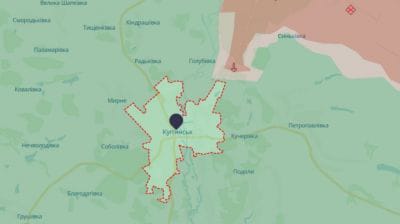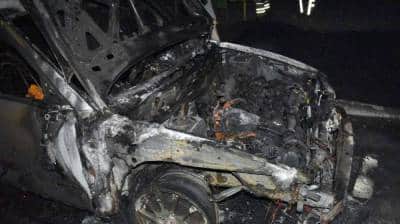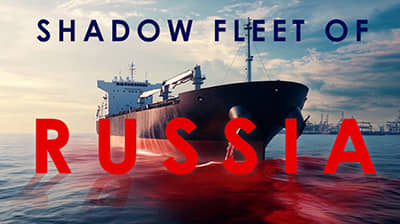Ukraine's National Guardsman on fierce battles in Luhansk Oblast and how Russians held pensioners hostage
A soldier of Ukraine's National Guard with the call sign Vesna (Spring) has told about the battles in Luhansk Oblast and how the Russians captured a boarding house and took elderly people hostage.
Source: Ukraine's National Guard on Facebook
Details: A National Guardsman with the call sign Vesna is a contract military of the 3rd Operational Brigade who started his service as a conscript. Currently, he is a gunner in an artillery unit.
At the beginning of February 2022, the man went on a rotation to Luhansk Oblast as part of a battalion group in the settlement of Shtormove.

A soldier of the National Guard of Ukraine with the call sign Vesna
"On 23 February, we had a test evacuation of a strongpoint; we gathered all our belongings in two and a half hours and moved to a safer position. We were stationing for a day, and then the command was given to return to our facilities before going to rest. A soldier who was on duty at the post ran into the dugout and said that the war had started," the guardsman says.

A National Guardsman with the call sign Vesna is a contract military of the 3rd Operational Brigade
At first, no one believed the soldier who brought the bad news, but in half an hour, the senior officer of the platoon base came running and told the servicemen to go down into the concrete shelter.
A soldier of the National Guard went outside, saw the shooting from the side of the settlement of Stanytsia Luhanska, and heard explosions.

Vesna describes the battles in Luhansk Oblast
"We spent some time in a shelter, then a KrAZ (heavy truck) came after us, and we first went to a checkpoint, then regrouped and headed in two columns towards the city of Rubizhne," Vesna says.
The position of the guardsmen in Shtormove was three kilometres from the Russian border; the group was small, so they would not have been able to hold the position against larger Russian forces.
Soon, the guardsmen were taken to Rubizhne. There, they received a new combat mission: together with another military unit, they had to repel the Russian column. Guardsmen were on duty in Rubizhne at observation posts and positions on the outskirts.

After being wounded and contused, Vesna serves again as part of his unit
"On the way out of Rubizhne, we set up a checkpoint in the direction of Kreminna, checking cars that were entering and leaving. Our checkpoint was shelled, and the senior soldier on the position gave the order to retreat," Vesna recalls.
The fighters went into the forest and waited until the shelling ended before returning to the checkpoint.
There was a boarding house near them; the checkpoint’s commander and two fighters went to check the building.
"In 10 minutes, bullets started flying overhead, and we again retreated to the forest strip. At the entrance to the building, there was a group of soldiers with red armbands [one of the Russian identification marks], who started shooting at us. At the same time, our checkpoint was bombarded with mortars. We got into an armoured capsule and retreated under fire to the battalion group to regroup," the National Guardsman notes.
In the evening of the same day, the guardsmen came back to the checkpoint, where there were already other Ukrainian military personnel who had arrived as reinforcements for the assault on the boarding house.
The military expected that there were only occupiers in the boarding house.However, when tanks and assault teams were already on the spot, the guards were ordered by the radio station not to open fire because there were civilians in the building.
"There were about a hundred elderly and disabled people who could not get out of there on their own. The Russian troops held the civilian population hostage; we had no choice but to launch a phased assault; during the assault, the invaders partially retreated into the forest," says the soldier.
The soldiers, who came to reinforce, went to catch up with the Russians, and the National Guardsmen were engaged in evacuating people.
"After that, we moved towards the village of Zolote and served at strongpoints there. We were shelled by heavy artillery, and we also fired in response; then a Russian tank approached our position at a distance of about 600 metres, started attacking our position, and withdrew. One of our servicemen was wounded, and one had been killed," the guardsman says.
The next day, the Russians approached our troops from a distance of nearly 10 metres, and there was mortar shelling and a direct hit from a mine in the dugout. Fortunately, everyone survived, but one guardsman was hit in the temple by shrapnel.
The soldiers got out of the dugout, but it was difficult; the wounded man lost consciousness on the way. The guards retreated after a fight, and the man carried the wounded one to the evacuation point.
"The enemy did not shoot precisely; they just shot a hail of bullets, and we were shooting back and retreated to a nearby position of the Armed Forces and requested artillery support; they opened fire on our position; later aerial reconnaissance confirmed the enemy's losses. After that, I was transferred to another position. It was the most unfortunate one, near Katerynivka," says the National Guardsman.
There was a clearing between the forest and the field, from which the tank drove out and began attacking the position of the Ukrainians, the ground and the trees.
The Russians knew that there were dugouts in the forest belt and fired as intensively as possible to break through.
The next morning there was another heavy shelling, and Vesna was also hit and was thrown back by the explosion wave. The man received a severe concussion; he was evacuated and taken to the hospital.
"I found out from the next battalion group that karma still exists, because this tank blew up on a mine there," said the guardsman.
Today, Vesna serves again as part of his unit.
After the start of Russia’s full-scale invasion, a professional bodyguard spent about a month and a half "storming" the military enlistment office to get into the combat unit of the National Guard.
Journalists fight on their own frontline. Support Ukrainska Pravda or become our patron!





